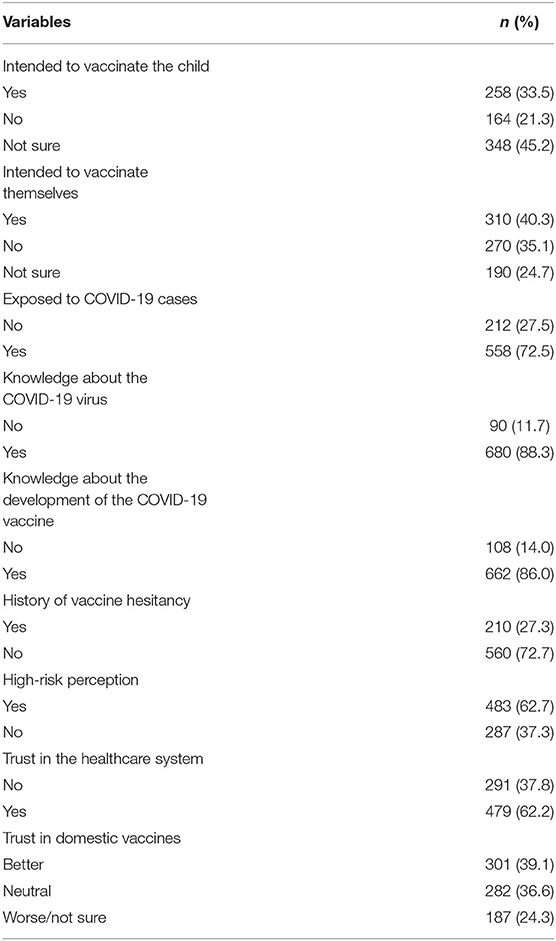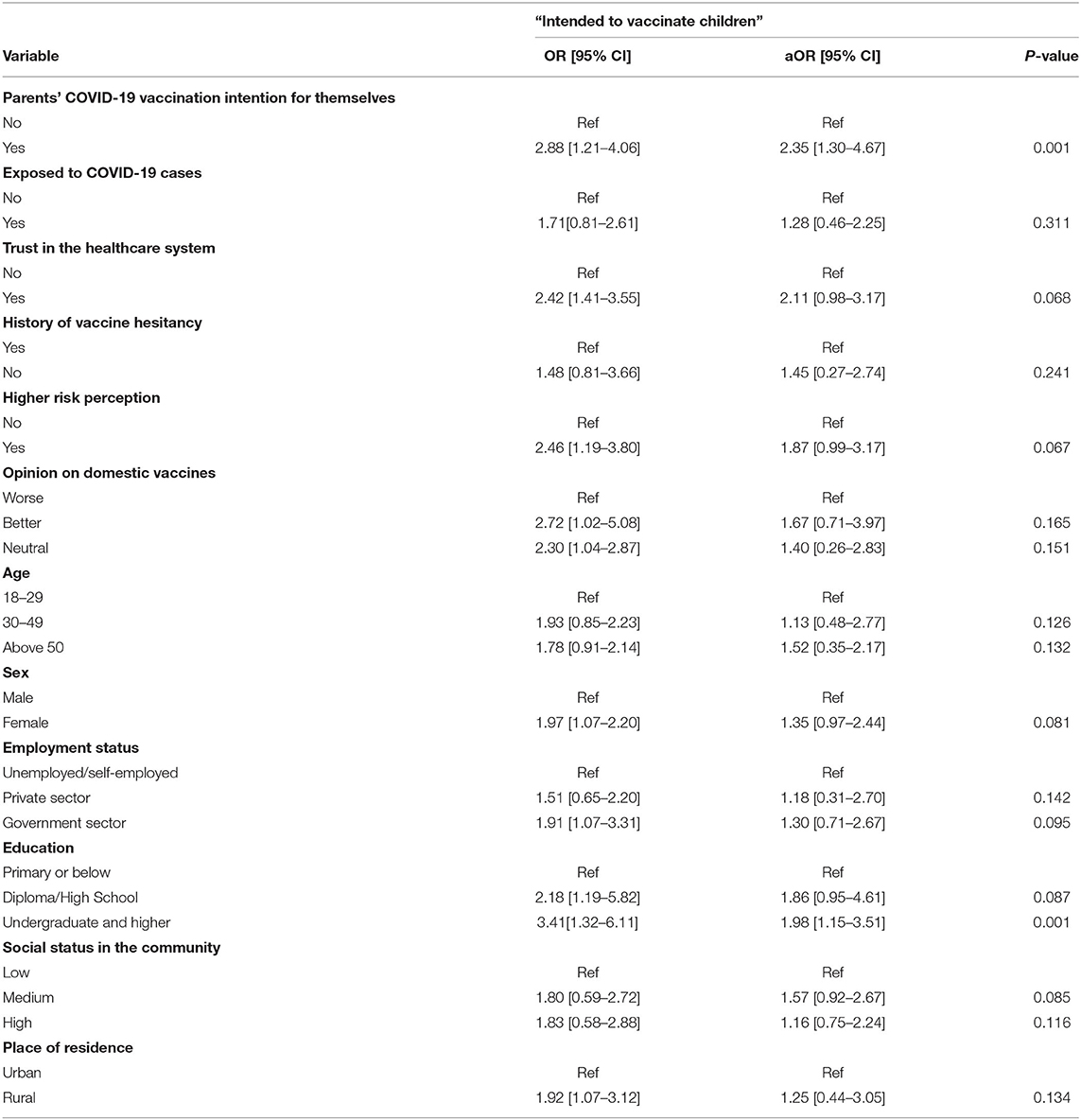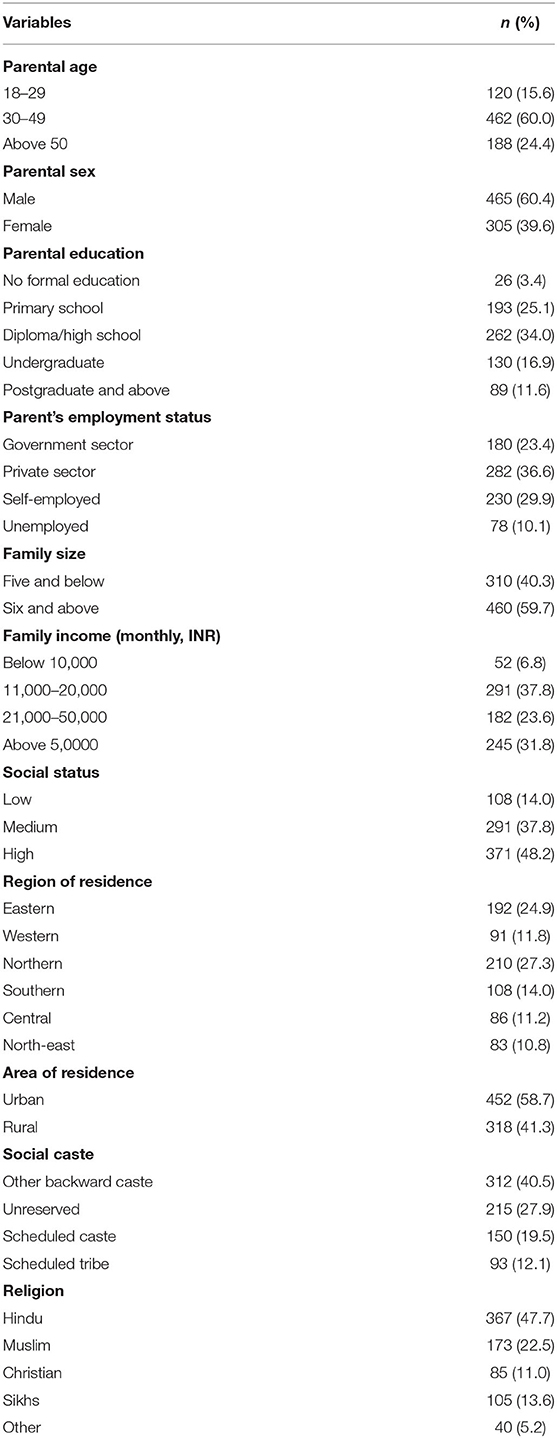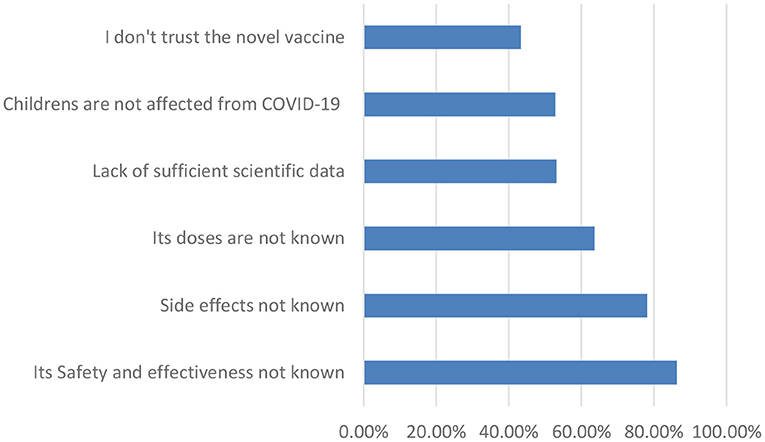- 1Department of Community Medicine and School of Public Health, Postgraduate Institute of Medical Education and Research (PGIMER), Chandigarh, India
- 2Department of Public Health, Utkal University, Bhubaneswar, India
- 3Department of Community Medicine & Family Medicine, All India Institute of Medical Sciences (AIIMS), Jodhpur, India
- 4Centre for Sexuality and Health Research and Policy (C-SHaRP), Chennai, India
- 5Department of Community and Family Medicine, All India Institute of Medical Sciences (AIIMS), Bhubaneswar, India
- 6Department of Preventive and Social Medicine, Jawaharlal Institute of Postgraduate Medical Education & Research (JIPMER), Puducherry, India
- 7Department of Community and Family Medicine, All India Institute of Medical Sciences (AIIMS), Kalyani, India
- 8Department of Community Medicine, North Eastern Indira Gandhi Regional Institute of Health & Medical Sciences (NEIGRIHMS), Shillong, India
- 9Grant Medical College & JJ Hospital, Mumbai, India
- 10Department of Community and Family Medicine, All India Institute of Medical Sciences (AIIMS), Rajkot, India
- 11Department of Community and Family Medicine, All India Institute of Medical Sciences (AIIMS), Bhopal, India
Background: Despite the success of adult vaccination against COVID-19, providing vaccines to children remains a challenge for policymakers globally. As parents are primary decision-makers for their children, we aimed to assess parents' perceptions and intentions regarding COVID-19 vaccination in India.
Methods: A cross-sectional web-based study was designed, parents or caregivers (N = 770) were recruited through snowball sampling using Google form. Cross-tabulation was performed by parents' intention to vaccinate their children against COVID-19 virus with sociodemographic characteristics and their risk perception toward COVID-19, trust in the healthcare system, and their history of vaccine hesitancy behavior. Multivariable logistic regression analysis was performed to compute the predictors of child vaccination intention among Indian parents.
Results: Seven hundred and seventy parents across the country have completed the survey. Of the 770 participants, 258 (33.5%) have shown intent to vaccinate their children. The stated likelihood of child vaccination was greater among parents who had a bachelor's degree or higher education (aOR: 1.98, 95% CI: 1.15–3.51); as well as among parents who intended to vaccinate themselves (aOR: 2.35, 95% CI: 1.30–4.67). Parental concerns centered around vaccine safety and side effects.
Conclusion: Indian parents reported high knowledge of the COVID-19 virus and were aware of the development of a vaccine. However, about one-third of parents intended to vaccinate their children, and about half of them were not sure whether to vaccinate their children or not against the COVID-19 virus. The study highlighted the need for health promotion strategies that promote vaccine uptake among parents.
Introduction
The World Health Organization (WHO) has reported more than 242 million confirmed cases of COVID-19 worldwide, including ~5 million deaths as of 20 October 2021 (1). India reported 34 million confirmed cases and 450 thousand deaths as of 25th October 2021 (1). An effective strategy to mitigate the morbidity and mortality of the COVID-19 and to ensure population higher levels of immunity is the development of an effective and safe vaccine for all populations, including children. In general, children with COVID-19 present with milder symptoms and are at lower risk of hospitalization and life-threatening complications (2). Numerous public health authorities, including the WHO and United States Centers for Disease Control and Prevention, advocate a vaccine for children. However, acceptance of the COVID-19 vaccine among parents or caregivers remains unexplored.
Since the start of the COVID-19 pandemic, a high number of vaccines is being developed (3). The WHO has declared on the 11th of July 2021 that 107 and 184 vaccine candidates are in clinical and pre-clinical stages, respectively, and at least 13 vaccines have been approved and administrated through four platforms (4). As of 25 October 2021, ~6 billion vaccine doses have been administrated worldwide (1). In India, as of 25 October 2021, the Ministry of Health and Family Welfare reported over one billion doses to adults (5). To expand the vaccine administration to children, the government of India is planning to implement a COVID-19 vaccine campaign for the age group of 12–18 years old (6).
Numerous studies on the COVID-19 vaccine acceptance shows that a lower number of parents were interested in vaccinating their children (7–15). A national survey in the United States reported less than one-half of parents are likely to administer a COVID-19 vaccine to their children (16). In Canada, 63.0% of parents intend to vaccinate their children against COVID-19 (10). In Turkey, only 36.3% of parents were willing to have their children receive the COVID-19 vaccine (13). In China, COVID-19 vaccine hesitancy was found to be 8.4% among reproductive women (8). In Japan, 472 (42.9%) out of 1,100 respondents, were willing to vaccinate their children (15). In a hospital-based study in Saudi Arabia, one-fourth of mothers were hesitant toward childhood immunization (11). To the best of our knowledge, none of the studies conducted in India address the intention and perception of parents' willingness to vaccinate their children in India.
Despite the success of adult vaccination globally, childhood immunization against the COVID-19 vaccine is now a challenge for policymakers. Including an effective and safe vaccine, a high level of vaccine acceptance among the parents or caregivers is also a key factor for global immunization success. Many factors such as fear about the vaccine safety and risk for a child to be infected by the virus impact parents' acceptance of the new COVID-19 vaccination program (13). Therefore, understanding parents' perception and acceptance of the COVID-19 vaccine will help in designing effective strategies for promotion and rolling out COVID-19 vaccination and beyond. To the best of our knowledge, this is the first community-based study in India that investigates parental willingness for COVID-19 vaccination. The study also explored factors associated with vaccine hesitancy among Indian parents or caregivers.
Methods
Study Design and Sample
We conducted a national online cross-sectional survey between November 2020 and January 2021 (before the introduction of the COVID-19 vaccine). The overall sample (N = 770) of parents were recruited across major geographical regions in India with an equal weightage to the urban and rural population. Respondents were adults who have one or more children 0–17 years old in their home and have access to the internet or telephone. We estimated a minimal sample size of 768, based on the maximum variability possible in the outcome variable in the population (i.e., a proportion of 0.50), with a margin of error of ±5 and 95% confidence intervals (CI). The design effect was kept at 2. Study participants were recruited through snowball sampling. Invitations to participate in the study were distributed to the respondents via email, social media: Twitter, Facebook, and the WhatsApp communication platform of the primary contacts of the study team and requested to transmit further for its maximum reach. Considerations were made to recruit the participants across major geographic regions of India. To ensure rigor and validity, respondents had unique IDs, and 10% of respondents were contacted by telephone for cross verification of the presence of children 0–17 years old in their home.
Questionnaire Development
A first draft of the questionnaire was prepared based on a review of the relevant literature and reviewed by subject experts. The draft questionnaires were pilot tested with 50 participants and adjusted for accuracy and clarity. The consistency and stability of the final questionnaires were tested using Cronbach's alpha (0.7). The online survey was administered via Google Forms and was distributed to the parents via Facebook, WhatsApp, and mail groups. Informed consent was obtained from all parents (18 years or older and currently living in India). Detailed responses were recorded further only those who provided informed consent to complete the survey.
Sociodemographic Measures
The survey has detailed information about the sociodemographic characteristics of study participants, including parental age, sex, education level, place of residence, income, occupation, and social status in the community.
Parents Knowledge of COVID-19 and Vaccine Intention
The survey tested parents' knowledge of the COVID-19 virus by asking, “Before this interview, were you aware that the COVID-19 virus is currently circulating in the community?”. The responses were captured in a 3-point Likert scale (Yes, No, and Do not know). We also asked parents to record their response to vaccine development knowledge by asking, “To the best of your knowledge, is there currently a vaccine being prepared for the pandemic Coronavirus strain referred to as COVID-19 vaccine?”. Parents' own likelihood of getting a COVID-19 vaccine (same 3-point Likert scale: Yes, No, and Not sure) was also recorded.
Intent to Vaccinate the Child
The survey asked, “Do you intend to vaccinate your child(ren) for COVID-19 once a vaccine is available for children?”. The responses were captured in a 3-point Likert scale (Yes, No, and Not sure). We coded “Yes” as “likely to get a COVID-19 vaccine;” all others were labeled as “hesitant”.
Statistical Analyses
The key outcome measures of the study were to know the parent's intention to vaccinate their children against the COVID-19 virus. Those who responded “Yes” were labeled as “Intended to vaccinate” vs. “hesitancy.” Descriptive statistical analysis was performed by doing cross-tabulation of demographic characteristics with the primary response variable “Intended to vaccinate.” We performed both simple and multivariable logistic regression analyses to compute the odds ratio (OR) and a 95% confidence interval (CI). Chi-squared tests were performed for bivariate analysis (cross-tabulation) between the outcome variable and all explanatory variables. A multivariate logistic regression model was constructed by including factors with P < 0.05 at binary comparisons. Inference on significant association was considered with a two-tailed p ≤ 0.05. STATA 15.0 software (StataCorp LP, Texas, USA) was used for all statistical analyses.
Ethical Considerations
Ethical approval was granted for the study by the institutional Research Ethics Committee of Post Graduate Institute of Medical Education and Research (PGIMER), Chandigarh, India. Informed assent was taken before participation in the study. Anonymized data was used for analysis, interpretation, and reporting.
Results
Seven hundred and seventy parents participated in this study. Over half of the parents were 30–49 years old (60.0%), 39.6% were female, 28.5% were educated to graduate level or higher, 23.4% employed in government sector, 59.7% had more than six members in their family, 31.8% had a monthly income above 50,000 Indian rupees, 41.3% reside in rural areas, and 48.2% perceived their social status as high in the community (Table 1).
The prevalence of parents' willingness to allow their children to receive the COVID-19 vaccine was 33.5%, whereas 40.3% of parents were willing to receive the COVID-19 vaccine. At the time of survey, 27.5% of parents had a history of exposure to confirmed COVID-19 cases and 62.7% had concerned of getting infected by COVID-19 virus. Most (88.3%) of the parents were aware that COVID-19 virus is currently circulating in the community, and 86.0% of them had knew that a vaccine is being prepared for the pandemic Coronavirus strain referred to as “COVID-19 vaccine.” Of the 770 parents, about one-fourth of them had a previous history of vaccine hesitancy, 62.2% had trusted the healthcare system, and 39.1% considered domestic vaccines were good (Table 2).

Table 2. Willingness to accept COVID-19 vaccine, contact history with COVID-19 patients, risk perception, and vaccine preferences among parents (N = 770).
Table 3 shows the analysis of bivariate and multivariable logistic models, and determined the predictors affecting parents' willingness to allow their children to be given the COVID-19 vaccine. In the bivariate analyses, trust in the healthcare system and domestic vaccines, higher risk perception, being employed in the government sector, and being a rural resident or a female were found to be associated with parent's intention to vaccinate their children. After adjusting for confounding variables, parent's own willingness to receive the COVID-19 vaccine (aOR: 2.35, 95% CI: 1.30–4.67), and parents who had a bachelor's degree or higher education (aOR: 1.98, 95% CI: 1.15–3.51) were found to be associated with parents' willingness to vaccinate their children (Table 3).

Table 3. Unadjusted and adjusted odds ratios for the association between parent's intention to vaccinate their children with sociodemographic and other COVID-19 behaviors (N = 770).
Figure 1, shows the concerns of parents in accepting the novel COVID-19 vaccine. The key reasons for reluctance to vaccinate their children were: concerns about safety and effectiveness (86.4%), fear of side effects (78.2%), lack of information about doses (63.7%), lack of sufficient scientific data (53.2%), perception that children are not affected by COVID-19 (52.8%), and lack of trust in vaccine (43.4%).
Discussion
In this study, we aimed to determine the acceptability of the COVID-19 vaccine among parents in India and the associated factors. To the best of our knowledge, this is the first study in India that investigates parents' willingness to administer COVID-19 vaccine to their children. Understanding the factors associated with vaccination intentions will help in implementation of vaccination program and elsewhere. We found that nearly 33.5% of parents would be willing to administer a COVID-19 vaccine to their child. Sociodemographic factors, such as higher education level and parents who intended to vaccinate themselves, were found to be associated with childhood vaccination. The main concerns raised by parents in our study were around the safety and effectiveness of the COVID-19 vaccine.
Our findings contribute to an emerging literature suggesting that there is a low demand for childhood COVID-19 vaccine among parents (7–9, 11, 17). A study conducted in Texas, USA reported that about 38.3% of mothers had no intention to consider COVID-19 vaccine for their children (17). The proportion of willing parents in India is considerably lower as compared to other countries as per studies from England (89%) (7); New Zealand (80%) (18); China (73%) (19); USA (65%) (20); Canada (63%) (10); Japan (42.9%) (15) and Turkey (42%) (21). A large proportion of participants in our study were aware about COVID-19 virus (88.3%); developmental status of COVID-19 vaccine (86%) and were exposed to COVID-19 (72.5%). In spite of that, less than half of the participants were willing to get themselves readily vaccinated (40.3%). This supports the findings that parent's intention to themselves get vaccinated is the most influential factor determining their intent toward children vaccination. Factors such as newness of vaccine, rapid development and unknown long-term side effects influence parent's perception of vaccine safety and their intention to get themselves and their children vaccinated (13). As reported by numerous studies, vaccine safety is fundamental to maintaining the public's trust in vaccines (12, 22, 23). Thus, future studies are required to understand long-term change in the perception of parents and factors influencing their intention to get themselves and their children vaccinated. Health care providers play a key role in influencing decision of parents toward vaccine acceptance and uptake. It is essential to thus engage with various level of health care providers and strategize vaccine messages to parents, especially those from lower education status. In our study the variable with the highest aOR [2.35; 95% CI: 1.30–4.67] was “parents' vaccination intention for themselves.” One possible interpretation of this result could be that if parents will (not) vaccinate themselves they will (not) vaccinate their children. So the hesitancy regarding vaccinating their children may not be due to special concerns about effectiveness and safety of the vaccine for children as compared to adults, but rather an overarching disbelief in the safety and effectiveness of the vaccine for anyone, adults or children. Therefore, emphasis should be drawn on the safety and effectiveness of vaccines in the rollout program.
Limitations of this study that should be considered include the sampling strategy adopted by the study which may not be representative of all parents in the country, limiting the generalizability of our finding. The cross-sectional design of the study should be interpretated carefully when accessing overall prevalence of vaccine hesitancy among parents in India. Our sample represented individuals with internet access and having mobile literacy. This does not necessarily reflect the country-wide perception of parents toward vaccine and their intention to get children vaccinated.
Despite the above limitations, our study assessed nationally representative sample of parents regarding their perceptions and intentions to vaccinate their children at a critical time, just as adult COVID-19 vaccination programs were initiated in India. Our findings reminiscent of recent research suggesting that there is a low demand for COVID-19 vaccine among parents, and highlights the need for longitudinal studies to measure the acceptability of a COVID-19 vaccines at different intervals. Future studies are thus required to supplement our current findings to enhance vaccine uptake among children in India. Nevertheless, our study establishes evidence regarding parent's hesitancy toward getting their children vaccinated and their concerns in the coming months must be addressed through targeted communication strategies.
Conclusion
This study depicts that Indian parents have good knowledge of COVID-19 and vaccine developments. However, parents' intention to vaccinate their children was found to be low, due to concerns about vaccine safety. The study warrants implementation of strategies to improve parents' knowledge about the safety, efficacy and side effects of COVID-19 vaccine.
Data Availability Statement
The raw data supporting the conclusions of this article will be made available by the authors, without undue reservation.
Ethics Statement
The studies involving human participants were reviewed and approved by Institutional Ethical Committee of Post Graduate Institute of Medical Education and Research (PGIMER), Chandigarh, India. The patients/participants provided their written informed consent to participate in this study.
Author Contributions
BP, MG, and AA conceptualized the study and designed the tools. BP, LJ, JV, PS, VC, BP, SK, RS, SP, SB, NR, VR, TK, KG, BM, LS, MG, and AA conducted the study at national level and collected the data. All authors reviewed drafts, provided edits, and approved the final submission.
Conflict of Interest
The authors declare that the research was conducted in the absence of any commercial or financial relationships that could be construed as a potential conflict of interest.
Publisher's Note
All claims expressed in this article are solely those of the authors and do not necessarily represent those of their affiliated organizations, or those of the publisher, the editors and the reviewers. Any product that may be evaluated in this article, or claim that may be made by its manufacturer, is not guaranteed or endorsed by the publisher.
Acknowledgments
The authors would like to acknowledge the study participants for their time and contributions to the study.
Abbreviations
COVID-19, Coronavirus disease-2019; WHO, World Health organization.
References
1. WHO. WHO Coronavirus (COVID-19) Dashboard. (2021). Available online at: https://covid19.who.int/
2. Hoang A, Chorath K, Moreira A, Evans M, Burmeister-Morton F, Burmeister F, et al. COVID-19 in 7780 pediatric patients: a systematic review. EClinicalMedicine. (2020) 24:100433. doi: 10.1016/j.eclinm.2020.100433
3. Lurie N, Saville M, Hatchett R, Halton J. Developing Covid-19 vaccines at pandemic speed. N Engl J Med. (2020) 382:1969–73. doi: 10.1056/NEJMp2005630
4. WHO. WHO COVID-19 - Landscape of Novel Coronavirus Candidate Vaccine Development Worldwide. COVID-19 Vaccine Tracker Landscape (2021). Available online at: https://www.who.int/publications/m/item/draft-landscape-of-covid-19-candidate-vaccines
5. MOHFW. Ministry of Health and Family Welfare, Government of India. COVID-19 Dashboard (2021). Available online at: https://mohfw.gov.in/
6. MOHFW. Ministry of Health and Family Welfare, Government of India. COVID-19 Dashboard, New Delhi (2021).
7. Bell S, Clarke R, Mounier-Jack S, Walker JL, Paterson P. Parents' and guardians' views on the acceptability of a future COVID-19 vaccine: a multi-methods study in England. Vaccine. (2020) 38:7789–98. doi: 10.1016/j.vaccine.2020.10.027
8. Du M, Tao L, Liu J. The association between risk perception and COVID-19 vaccine hesitancy for children among reproductive women in China: an online survey. Front Med. (2021) 8:741298. doi: 10.3389/fmed.2021.741298
9. Aggarwal S, Madaan P, Sharma M. Vaccine hesitancy among parents of children with neurodevelopmental disabilities: a possible threat to COVID-19 vaccine coverage. J Child Neurol. (2021) 37:99. doi: 10.1177/08830738211042133
10. Humble RM, Sell H, Dubé E, MacDonald NE, Robinson J, Driedger SM, et al. Canadian parents' perceptions of COVID-19 vaccination and intention to vaccinate their children: results from a cross-sectional national survey. Vaccine. (2021) 39:7669–76. doi: 10.1016/j.vaccine.2021.10.002
11. Aldakhil H, Albedah N, Alturaiki N, Alajlan R, Abusalih H. Vaccine hesitancy towards childhood immunizations as a predictor of mothers' intention to vaccinate their children against COVID-19 in Saudi Arabia. J Infect Public Health. (2021) 14:1497–504. doi: 10.1016/j.jiph.2021.08.028
12. Goldman RD, Krupik D, Ali S, Mater A, Hall JE, Bone JN, et al. Caregiver willingness to vaccinate their children against COVID-19 after adult vaccine approval. Int J Environ Res Public Health. (2021) 18:10224. doi: 10.3390/ijerph181910224
13. Yilmaz M, Sahin MK. Parents' willingness and attitudes concerning the COVID-19 vaccine: a cross-sectional study. Int J Clin Pract. (2021) 75:14364–74. doi: 10.1111/ijcp.14364
14. Catma S, Reindl D. Parents' willingness to pay for a COVID-19 vaccine for themselves and their children in the United States. Hum Vaccin Immunother. (2021) 17:2919–25. doi: 10.1080/21645515.2021.1919453
15. Yoda T, Katsuyama H. Parents' hesitation about getting their children vaccinated against COVID-19 in Japan. Hum Vaccin Immunother. (2021) 17:4993–4998. doi: 10.1080/21645515.2021.1981087
16. Szilagyi PG, Shah MD, Delgado JR, Thomas K, Vizueta N, Cui Y, et al. Parents' intentions and perceptions about COVID-19 vaccination for their children: results from a national survey. Pediatrics. (2021) 148:e2021052335. doi: 10.1542/peds.2021-052335
17. Zakeri M, Li J, Sadeghi SD, Essien EJ, Sansgiry SS. Strategies to decrease COVID-19 vaccine hesitancy for children. J Pharm Heal Serv Res. (2021) 12:539–44. doi: 10.1093/jphsr/rmab060
18. Jeffs E, Lucas N, Walls T. COVID-19: parent and caregiver concerns about reopening New Zealand schools. J Paediatr Child Health. (2021) 57:403–8. doi: 10.1111/jpc.15234
19. Zhang KC, Fang Y, Cao H, Chen H, Hu T, Chen YQ, et al. Parental acceptability of COVID-19 vaccination for children under the age of 18 years: cross-sectional online survey. JMIR Pediatr Parent. (2020) 3:e24827. doi: 10.2196/24827
20. Goldman RD, Yan TD, Seiler M, Parra Cotanda C, Brown JC, Klein EJ, et al. Caregiver willingness to vaccinate their children against COVID-19: cross sectional survey. Vaccine. (2020) 38:7668–73. doi: 10.1016/j.vaccine.2020.09.084
21. Akarsu B, Canbay Özdemir D, Ayhan Baser D, Aksoy H, Fidanci I, Cankurtaran M. While studies on COVID-19 vaccine is ongoing, the public's thoughts and attitudes to the future COVID-19 vaccine. Int J Clin Pract. (2021) 75:13891–900. doi: 10.1111/ijcp.13891
22. Opel DJ, Diekema DS, Ross LF. Should we mandate a COVID-19 vaccine for children? JAMA Pediatr. (2021) 175:125–6. doi: 10.1001/jamapediatrics.2020.3019
Keywords: vaccine acceptance, vaccine hesitancy, children, risk perception, trust
Citation: Padhi BK, Satapathy P, Rajagopal V, Rustagi N, Vij J, Jain L, Chakrapani V, Patro BK, Kar SS, Singh R, Pala S, Sankhe L, Modi B, Bali S, Kiran T, Goel K, Aggarwal AK and Gupta M (2022) Parents' Perceptions and Intention to Vaccinate Their Children Against COVID-19: Results From a Cross-Sectional National Survey in India. Front. Med. 9:806702. doi: 10.3389/fmed.2022.806702
Received: 01 November 2021; Accepted: 04 April 2022;
Published: 18 May 2022.
Edited by:
Kin On Kwok, The Chinese University of Hong Kong, ChinaReviewed by:
Massab Umair, National Institute of Health, PakistanRunming Jin, Huazhong University of Science and Technology, China
Takeshi Yoda, Kawasaki Medical School, Japan
Steve Newbold, University of Wyoming, United States
Copyright © 2022 Padhi, Satapathy, Rajagopal, Rustagi, Vij, Jain, Chakrapani, Patro, Kar, Singh, Pala, Sankhe, Modi, Bali, Kiran, Goel, Aggarwal and Gupta. This is an open-access article distributed under the terms of the Creative Commons Attribution License (CC BY). The use, distribution or reproduction in other forums is permitted, provided the original author(s) and the copyright owner(s) are credited and that the original publication in this journal is cited, in accordance with accepted academic practice. No use, distribution or reproduction is permitted which does not comply with these terms.
*Correspondence: Madhu Gupta, madhugupta21@gmail.com; Tanvi Kiran, tanvikiran3@yahoo.com
†These authors have contributed equally to this work
 Bijaya Kumar Padhi
Bijaya Kumar Padhi Prakasini Satapathy
Prakasini Satapathy Vineeth Rajagopal
Vineeth Rajagopal Neeti Rustagi
Neeti Rustagi Jatina Vij
Jatina Vij Lovely Jain
Lovely Jain Venkatesan Chakrapani
Venkatesan Chakrapani Binod Kumar Patro
Binod Kumar Patro Sitanshu Sekhar Kar
Sitanshu Sekhar Kar Ritesh Singh
Ritesh Singh Star Pala
Star Pala Lalit Sankhe
Lalit Sankhe Bhavesh Modi
Bhavesh Modi Surya Bali
Surya Bali Tanvi Kiran
Tanvi Kiran Kapil Goel
Kapil Goel Arun Kumar Aggarwal
Arun Kumar Aggarwal Madhu Gupta
Madhu Gupta
